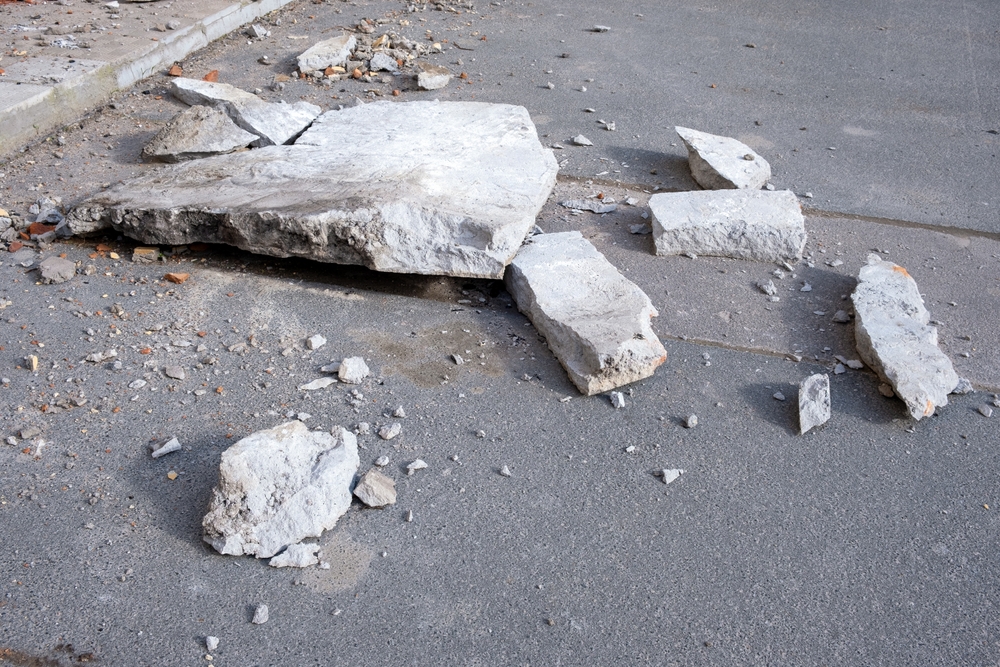March 7, 2024 - Benjamin Ehinger
Hiring Only Licensed and Insured Contractors: Securing Quality and Protection
CALL NOW 844-762-8449
When embarking on a home renovation or construction project, selecting the right contractor is crucial to the project’s success. Opting for a licensed and insured contractor offers several advantages, including protection against liability and financial risks. Contractors who possess these credentials demonstrate a commitment to adhering to industry standards and regulations. Legitimate licensing ensures that a contractor has the necessary qualifications and experience to perform the work, while insurance protects both you and the contractor in the event of accidents or property damage.
Understanding the distinction between bonded and insured professionals is also important. Insured contractors carry liability and workers’ compensation insurance, providing coverage that helps protect you from potential legal and financial pitfalls. On the other hand, a bond essentially serves as an additional layer of consumer protection, offering financial recourse if a contractor fails to fulfill contractual obligations or performs substandard work. Selecting a contractor who is licensed, insured, and possibly bonded can give you peace of mind, knowing that your property and investment are safeguarded.
Moreover, hiring a licensed contractor ensures that they are up to date with the latest building codes and regulations, minimizing the risk of costly errors or rework. Additionally, using an insured professional minimizes the risks associated with accidents and liabilities, indicating a commitment to adhering to industry standards and regulations.
In summary, by ensuring that your contractor is both licensed and insured, you are protecting your investment and yourself from unnecessary risk.
 When you embark on hiring a contractor, it’s crucial to ensure they are both licensed and insured. This protects you legally and financially. Follow these steps to secure a professional for your construction needs.
When you embark on hiring a contractor, it’s crucial to ensure they are both licensed and insured. This protects you legally and financially. Follow these steps to secure a professional for your construction needs.
 When you hire a licensed and insured contractor, you ensure adherence to legal standards and prioritize the safety of everyone involved in your project.
When you hire a licensed and insured contractor, you ensure adherence to legal standards and prioritize the safety of everyone involved in your project.
Key Takeaways
- Hiring licensed and insured contractors validates their professionalism and protects your interests.
- Insurance and bonding offer distinct types of financial protection and recourse.
- Properly vetted contractors reduce the risk of liability and ensure project compliance with regulations.
Understanding the Importance of Licensed and Insured Contractors
When you’re planning a construction project, whether residential or commercial, hiring licensed and insured contractors is crucial for several reasons. A license offers proof that the contractor has the necessary training and qualifications to perform the work to a certain standard. This means they have passed tests and meet the criteria set by local or state governments. An insured contractor is protected against various risks, including accidents and property damage. If an uninsured contractor gets injured on your property, you could be held liable. Insurance ensures that you are not out-of-pocket if something unexpected happens.| Benefits | Description |
|---|---|
| Legal Compliance | Contractors are required by law to be licensed and insured; working with them ensures that your project complies with legal standards. |
| Quality Assurance | Licensing indicates adherence to industry standards, suggesting a higher quality of workmanship. |
| Financial Protection | Insurance offers protection against potential liability or costs associated with accidents or damage. |
| Peace of Mind | Knowing that your contractor meets these requirements allows you to be confident in the progression of your project. |
Legal and Financial Implications
When hiring contractors, being aware of the legal and financial implications is essential. Proper licensing and insurance are not just formalities; they’re protections for both you and the contractor.Contractor Licensing Requirements
Contractor licensing serves as a proof of a contractor’s legitimacy and competence. Each state has its own set of requirements. For instance, unlicensed contractors are not legally allowed to perform certain types of work, and you as a property owner may face liabilities if unlicensed work leads to problems. Illinois, for example, mandates that contractors must be licensed to undertake any structural work on your property, and the failure to adhere to this can lead to penalties. Learn more about your state’s specific licensing statutes to mitigate risks.Insurance Coverage Essentials
Insuring the work and workers is non-negotiable. Insurance coverage is critical to protect against potential property damage, on-site injuries, or accidents. Should an uninsured contractor face an accident on your property, you could be held liable for medical and legal expenses. Insurance acts as your financial guardrail, ensuring damages or accidents are not directly out of pocket expenses. Always confirm the insurance details and know what is covered under their policy.The Hiring Process
 When you embark on hiring a contractor, it’s crucial to ensure they are both licensed and insured. This protects you legally and financially. Follow these steps to secure a professional for your construction needs.
When you embark on hiring a contractor, it’s crucial to ensure they are both licensed and insured. This protects you legally and financially. Follow these steps to secure a professional for your construction needs.
Verifying Credentials
First, confirm that your contractor has the necessary licenses and insurance to perform the work. In many jurisdictions, contractors must show proof of their professionalism and adherence to local regulations by possessing the required credentials. For instance, in California, it’s illegal to hire an unlicensed contractor for projects over $500. This information can often be checked through your state’s licensing board or by requesting documentation directly from the contractor.Evaluating Contractor Portfolios
Examine the contractor’s past projects to assess their quality and relevance to your job. Look for a diverse portfolio that showcases their experience. This will provide you confidence in their capability to handle your project. Don’t hesitate to ask for references or to see examples of completed work.Negotiating Contracts
Finally, discussing and finalizing the contract is key. Ensure the contract includes detailed descriptions of the scope of work, materials to be used, timelines, payment schedules, and warranty information. Understanding the difference between bonded and insured contractors will also be crucial during negotiations, as it relates to the guarantees provided about the contractor fulfilling the contractual agreements.Risks of Hiring Unlicensed Contractors
When you hire an unlicensed contractor, you’re exposed to a range of legal and financial risks that could have significant repercussions for your project and personal liability.Liability Issues
If an unlicensed contractor is injured while working on your property, you may be held responsible for their medical expenses because they likely lack proper insurance. Unpaid damages to your property during the job could also leave you financially burdened, as you would have no recourse through the contractor’s insurance to cover the costs.Quality Concerns
Hiring an unlicensed contractor often means compromising on the quality of work. There’s a high risk that the construction will not meet building code regulations, potentially resulting in expensive repairs later, especially if you plan to sell your home. Unlicensed contractors might not have the expertise or qualifications to perform complex tasks, leading to substandard work that could devalue your property or even endanger your safety.Maintaining Compliance and Safety
 When you hire a licensed and insured contractor, you ensure adherence to legal standards and prioritize the safety of everyone involved in your project.
When you hire a licensed and insured contractor, you ensure adherence to legal standards and prioritize the safety of everyone involved in your project.
Regular Compliance Checks
You need to verify that your contractor performs regular compliance checks. This can include updating licenses and insurance, ensuring they’re in line with current regulations. A critical aspect is to confirm that they use a construction dumpster rental for proper waste management, maintaining a clean and orderly worksite.Workplace Safety Protocols
Your contractor must establish and follow rigorous workplace safety protocols. Here’s what to expect:- Routine Safety Training: Regular sessions to keep safety practices fresh in the team’s mind.
- Equipment Maintenance: Consistent checks and maintenance to keep equipment functioning safely.
- Personal Protective Equipment (PPE): Provision and enforcement of using PPE at all times on site.
Frequently Asked Questions
Hiring licensed and insured contractors is crucial for the safety and security of your home improvement projects. These FAQs will help you understand how to verify contractor qualifications and the benefits of proper coverage.How can I verify a contractor’s license and insurance status?
To verify a contractor’s license, request their license number and check it against your state’s licensing board’s official website. For insurance status, ask the contractor for a Certificate of Insurance (COI) that proves they have active policies, and confirm the details with the insurance provider.What risks am I exposed to if I hire an uninsured subcontractor?
If you hire an uninsured subcontractor, you risk being liable for accidents or damages that occur on your property. This can include medical expenses if a worker is injured, or repair costs for any property damage during the course of the work.What are the consequences of hiring an unlicensed contractor in my state?
Hiring an unlicensed contractor can lead to fines and penalties for both the contractor and you as the homeowner. Additionally, you may have no legal recourse for poor workmanship or unfinished projects, and the work may not comply with local building codes.What protections does hiring a fully insured contractor offer to me as a homeowner?
A fully insured contractor provides protections such as coverage for property damage and worker’s compensation in case of injuries. This means if an accident happens, the contractor’s insurance should cover the costs, not you.How do I obtain proof of insurance from a contractor before starting a project?
Request a current Certificate of Insurance from the contractor, which should include liability and worker’s compensation coverages. Ensure the policy is active for the duration of your project.How does homeowner’s insurance interact with uninsured workers on my property?
Your homeowner’s insurance typically does not cover accidents involving uninsured workers. You could be held personally responsible for injuries or damages, which may lead to claims against your homeowner policy and potential premium increases.RECENT BLOGS
Our Reviews
Glenda Lanier Prowell
1721758635
I have ordered an 11 yard dumpster to be delivered to my house.Lonier was extremely helpful and answered all my questions. The rate was very reasonable.
Cedric Smikle
1721660395
Amber was extremely professional and courteous. She answered all of my questions and even some that I didn’t know I needed to ask.
Cait Kaider
1721243051
I highly recommend Waste Removal USA for their responsiveness and how the staff work hard to provide exceptional customer service. They have done well by us and our clients. Thank you!
Easom Family
1721223306
Louiner Pierre-Louis Is awesome! Did a great job. Will definitely be using this same company for all my dumpster needs because of his awesome customer service! Thank you!!!
tabitha Vazquez
1720539988
Wonderful and fast customer service!
LATEST BLOGS






